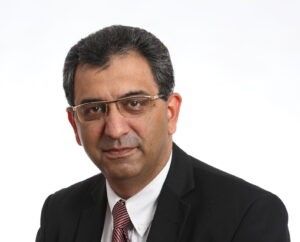On December 18, a ballot for industrial action by doctors will be returned to the British Medical Association.
That is not new, except it is, because this time it’s specifically by a group of doctors virtually unheard of both in public and, sometimes, the NHS.
They are called specialist, associate specialist and specialty (SAS) doctors and just like their junior doctor and consultant colleagues, they have had their fill of years of pay erosion.
Since 2008-2009, a real terms pay cut has meant SAS doctors in England effectively work more than three and a half months a year, every year, for no pay. This cannot go on.
While the name of this cohort is not easily recognised, SAS doctors are on the frontline of patient care and make up the trinity of hospital doctors, working alongside juniors and consultants. They are mostly permanent staff and provide a largely specialist service.
I’m an associate specialist in ear, nose and throat surgery; I run clinics, operate on patients – often autonomously – carry out investigative work, and every week I also work on-call doing one in four nights and one in eight weekends.
But, there is an assumption that SAS doctors are not somehow as important as our colleagues.
A BMA survey last year found that 43 per cent of SAS doctors had been subject to bullying, harassment or victimisation in the workplace at least once in the last year.
A staggering three-quarters said they believed it was because of their grade – in other words, because we weren’t held in the same regard as other colleagues.
I’ve felt this too. If a clinic is a doctor short, I’m sent to fill that slot, without regard for what I might be in the middle of doing or if it’s something that can be covered by a more junior doctor.
Sometimes, I’m even removed from theatre to fill in clinic gaps or do daytime on-call.
We don’t get recognition within our workplaces, from our managers or colleagues; so, when it comes to the government paying us properly, we have bigger challenges to face than many of our other colleagues do. One of those challenges is racism.
The same BMA survey revealed that 38 per cent of SAS doctors felt their latest experience of bullying, harassment, or victimisation was because of their ethnic or racial background, with a further 20 per cent saying it was because they have an accent or don’t speak English as a first language.
According to NHS data, 44 per cent of specialty doctors and 44 per cent of associate specialist doctors are Asian.
A further 40 per cent of staff grade doctors, who are also SAS, are also Asian1.

The government’s recent proposal to cut migration is likely to create a sense of anxiousness for international medical graduates (IMG) – many of whom are SAS doctors. A policy like this could easily exacerbate the unique challenges SAS doctors face, by making them feel targeted and not as valued or welcomed as their colleagues.
The worst part is that all of this forms a vicious and seemingly unbreakable cycle – contending with gradism, bullying and racism means that incidents go unreported, and so SAS doctors’ voices continue to go unheard.
It’s no wonder then, that when it comes to speaking up about the issue of pay, SAS doctors are reluctant and don’t feel like they’re able to.
The BMA knows this has to change and is working hard to support our colleagues to feel empowered to speak up against years of pay erosion. We ask for respect and recognition of what we bring to the NHS, including pay – because, contrary to how we might be made to feel at times, we play a crucial role to our patients and to the NHS workforce.
If successful, the ballot will give the BMA a mandate to continue our negotiations with the government and leverage to improve working conditions – including fair pay for the work we do. It is also, however, symbolic and, I hope, will give us the confidence to work towards eradicating the other challenges that force so many SAS doctors into silence.
The time to stand up for what SAS doctors deserve, is now. And with just the last few days to get postal votes for the ballot sent off, the time to speak, is now.
(Dr Amit Kochhar is the lead negotiator for the BMA’s SAS Committee)
- https://www.ethnicity-facts-figures.service.gov.uk/workforce-and-business/workforce-diversity/nhs-workforce/latest#by-ethnicity-and-staff-group

